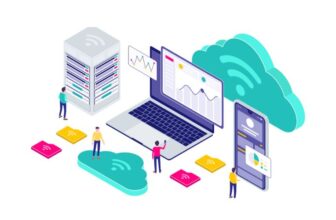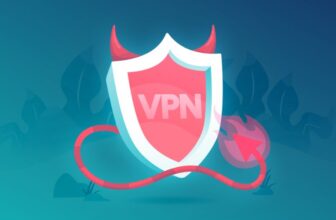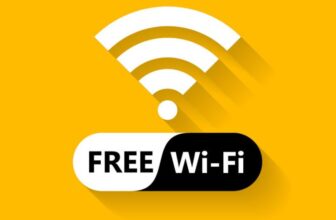
VPNs, or virtual private networks, have become increasingly popular in recent years as people become more aware of the importance of online privacy and security. However, there are still many misconceptions about what VPNs do and how they work. In this blog post, we’ll debunk five of the most common VPN myths.
Myth #1: VPNs are only for tech geeks

VPNs used to be complex and difficult to set up, but this is no longer the case. Today’s VPNs are easy to use and accessible to everyone, regardless of their technical expertise. Most VPN providers offer user-friendly apps that can be installed on any device in minutes.
Myth #2: All VPNs slow down internet speeds

It’s true that using a VPN can slightly slow down your internet connection, but this is usually only noticeable for high-bandwidth activities like streaming or gaming. For most everyday tasks, you won’t even notice a difference. And, if you choose a good VPN provider with a large network of servers, you can minimize any speed loss.
Myth #3: Free VPNs are just as good as paid VPNs

There are many free VPNs available, but they’re not all created equal. Many free VPNs sell their users’ data to third-party advertisers, or they may even inject malware onto their users’ devices. Paid VPNs, on the other hand, offer better security and privacy features, and they’re less likely to sell your data.
Myth #4: VPNs can make you completely anonymous online

While VPNs can help to protect your privacy, they can’t make you completely anonymous online. Your VPN provider can still see your IP address, and they may log your activity. Additionally, if you’re not careful, you can still reveal your identity online even when using a VPN. For example, if you log into a social media account while connected to a VPN, the social media company will still be able to see your real IP address.
Myth #5: VPNs are illegal

VPNs are legal in most countries, but there are a few exceptions. For example, VPNs are banned in China and Russia. Additionally, some countries have restrictions on using VPNs for certain activities, such as torrenting or accessing banned websites.
Benefits of using a VPN

Despite the myths, there are many benefits to using a VPN. Here are just a few:
- Protect your privacy online. A VPN encrypts your traffic, so your ISP and other third parties can’t see what you’re doing online.
- Bypass geo-restrictions. A VPN allows you to connect to a server in another country, so you can access websites and content that is blocked in your region.
- Secure your public Wi-Fi connection. Public Wi-Fi networks are often unsecured, so using a VPN can help to protect your data from hackers.
- Improve your internet speeds. If your ISP is throttling your bandwidth, a VPN can help to bypass this and improve your speeds.
How to choose a VPN

When choosing a VPN, there are a few factors you should consider:
- Security and privacy features. Make sure the VPN you choose uses strong encryption protocols and has a good privacy policy.
- Server network. Choose a VPN with a large network of servers in different countries. This will give you more options for choosing a server that is close to you and has good speeds.
- Price. VPNs can range in price from free to $10 or more per month. Choose a VPN that fits your budget and needs.
Conclusion
VPNs are a great way to protect your privacy and security online. They’re also a good way to bypass geo-restrictions and improve your internet speeds. When choosing a VPN, be sure to consider the security and privacy features, server network, and price.
FREQUENTLY ASKED QUESTIONS:
Q: What is a VPN?
Q: What are the benefits of using a VPN?
– Protecting your privacy online. A VPN encrypts your traffic, so your ISP and other third parties can’t see what you’re doing online.
– Bypassing geo-restrictions. A VPN allows you to connect to a server in another country, so you can access websites and content that is blocked in your region.
– Securing your public Wi-Fi connection. Public Wi-Fi networks are often unsecured, so using a VPN can help to protect your data from hackers.
– Improving your internet speeds. If your ISP is throttling your bandwidth, a VPN can help to bypass this and improve your speeds.
Q: What are the common myths about VPNs?
– VPNs are only for tech geeks. VPNs are now easy to use and accessible to everyone.
– All VPNs slow down internet speeds. While VPNs can slightly slow down your connection, this is usually only noticeable for high-bandwidth activities.
– Free VPNs are just as good as paid VPNs. Free VPNs often sell their users’ data or inject malware onto their devices. Paid VPNs offer better security and privacy features.
– VPNs can make you completely anonymous online. VPNs can help to protect your privacy, but they can’t make you completely anonymous. Your VPN provider can still see your IP address, and they may log your activity.
– VPNs are illegal. VPNs are legal in most countries, but there are a few exceptions.







